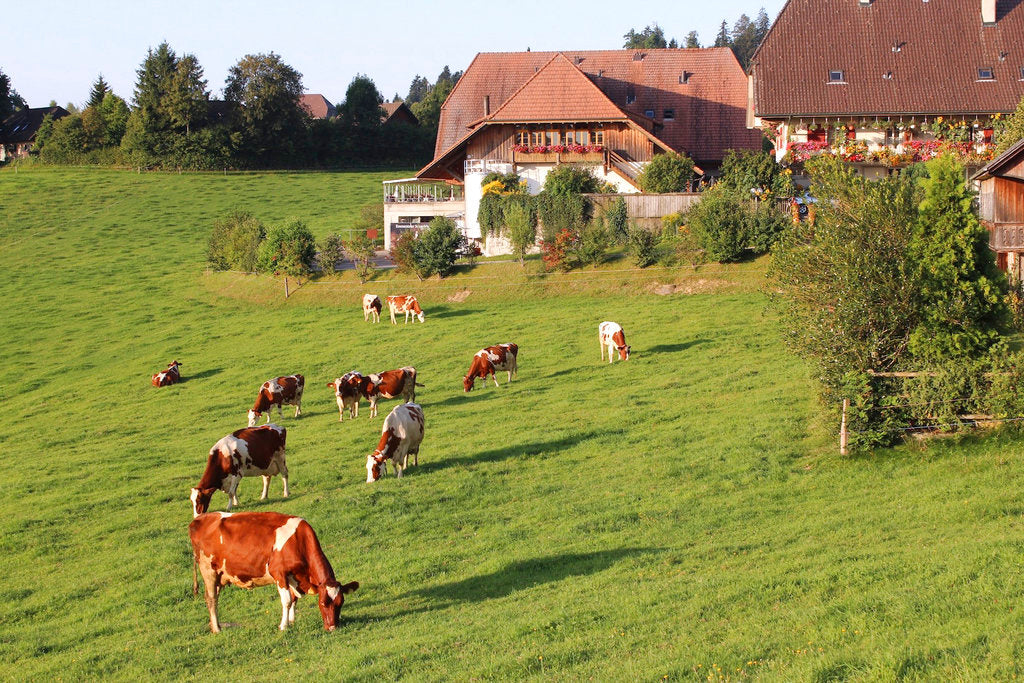




similar formulas
Holle Bio Stage 4 Goat
Premium Organic Goat Milk European Baby Formula

For ages
From: in 30-pack
Unit size:
Yields: of ready-made formula
+ FREE SHIPPING!
BEST DEAL!
+ Canadian import duties according to this table
Organic Full Cream Goat's Milk Powder, Organic Maltodextrin, Organic Lactose, Organic Vegetable Oils (Organic Sunflower Oil, Organic Rapeseed Oil, L-Choline, Calcium Hydroxide, Microalgae Oil, L-Cystine, Calcium Carbonate, Magnesium Chloride, Vitamin C, L-Tryptophan, L-Tyrosin, Sodium Citrate, Sodium Chloride, Iron Lactate, Inositol, Vitamin E, Zinc Sulfate, L-Carnitine, Niacin, Pantothenic Acid, Copper Sulfate, Vitamin A, Vitamin B1, Vitamin B6, Folic Acid, Vitamin B2, Manganese Sulfate, Potassium Iodide, Vitamin K, Sodium Selenite, Vitamin D3, Biotin, Vitamin B12.
Your order will be processed within 2 business days and then promptly shipped out. All shipments are handled by UPS Express.
Shipping typically averages between 2-5 business days.
Please note that we are not responsible for any taxes and or duties that may be charged by the carrier before arrival at your destination.
similar formulas
WHY DO BABIES LOVE Holle Bio Goat Stage 4 FORMULA?
European Organic Farms

About Holle
your baby deserves the best

Frequently Asked Questions
-
IS HOLLE GOAT MILK FORMULA SAFE?
Holle goat milk formula is generally safe and high-quality, meeting strict European organic standards for infant nutrition. It's designed to be easily digestible, potentially causing fewer digestive issues compared to cow milk formulas. However, parents should always consult their pediatrician before switching formulas, carefully follow preparation instructions, and ensure the formula is age-appropriate. While goat milk formula can be a good alternative for babies with cow milk sensitivities, it's crucial to use a properly fortified, commercial infant formula, not raw goat milk, which is unsafe for infants under one year.
-
CAN BABIES DRINK GOAT MILK INSTEAD OF FORMULA?
No, babies should not drink pure goat milk instead of formula. The American Academy of Pediatrics warns that goat milk (and other animal milks) is unsafe and potentially life-threatening for infants under 1 year of age. Goat milk alone lacks essential nutrients needed for infant growth, has excessive protein content that can stress an infant's kidneys, and may cause anemia due to low folate levels. Instead, infants should be fed breast milk or properly formulated infant formula designed to meet their specific nutritional needs. If considering an alternative to cow's milk-based formula, parents should consult a pediatrician about goat milk-based infant formulas, which are fortified with necessary vitamins and minerals.
-
WHAT IS THE DIFFERENCE BETWEEN HOLLE STAGE 3 AND 4?
The differences between Holle Stage 3 and Holle Stage 4 formulas primarily relate to their intended age ranges and nutritional content. Holle Stage 3 is designed for infants aged 10 to 12 months and provides balanced nutrition to support their growth as they become more active, including higher levels of potassium, protein, and folic acid compared to Stage 2. In contrast, Holle Stage 4 is suitable for toddlers aged 12 months and older and is formulated to meet the nutritional needs of older children, incorporating additional nutrients like calcium and vitamin D for bone health, as well as DHA for cognitive development. Stage 4 also includes prebiotics and probiotics to support digestion. Disclaimer: Always consult with your pediatrician before making any changes to your baby's diet or formula, as individual nutritional needs may vary.
-
IS GOAT FORMULA EASIER FOR BABIES TO DIGEST?
Goat milk formula is generally easier for babies to digest due to its unique protein and fat structure. The proteins form smaller, softer curds in the stomach, similar to breast milk, and contain predominantly A2 beta-casein protein, which can cause fewer digestive issues compared to cow milk formula. Smaller fat globules and protein digestion kinetics more closely resembling human milk contribute to better digestibility. While many babies tolerate goat milk formula well, especially those with cow milk sensitivities, individual responses vary. Parents should always consult their pediatrician before switching formulas to ensure it meets their baby's specific nutritional needs.
-
WHY ISN T HOLLE FORMULA FDA APPROVED?
Holle formula is not FDA approved primarily due to differences in regulatory standards between the United States and Europe. While Holle meets the stringent nutritional and safety requirements set by the European Commission, these do not always align with those established by the FDA. The process for obtaining FDA approval can be costly and time-consuming, which may not be feasible for some companies like Holle that have a strong presence in Europe. Additionally, the FDA has specific labeling requirements that Holle products may not meet. It's important to note that the absence of FDA approval does not imply that Holle formula is unsafe; many parents choose to import it due to its organic credentials and positive reviews. However, parents should consult with their pediatricians to ensure they are making informed decisions about their child's nutrition and safety.










